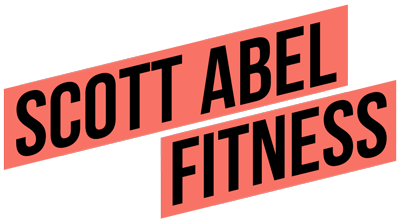I recently went to Aruba and conducted a bit of an experiment on myself. I’ve discussed the results, and in a follow-up discussion offered a few keys to healthy metabolism.
However, I also noticed something based on the comments from people I read during the experiment.
They revealed a lot about people’s diet psychology, and I got to thinking about how this can affect metabolism. It’s important to see how much psychology and our psychological imprinting can influence how we approach diet, food, and eating, and how these things can affect metabolism over the long-term.
So in this article let me address some of the specific comments I received during this experiment, because I think you can learn from and benefit from some of the psychological insights they reveal.
“What is over-eating?” + “What is a cheat day?”
Let me address these two quickly, as background.
Overeating is eating more than what you are used to, in terms of caloric density and overall volume of food. A cheat day is a single day of large over- eating.
Periods of over-eating and cheat days can have beneficial effects on metabolism. However, you have to approach them with the right mindset. (Hence, this article.)
“What is a supercompensation mode? How do I get into it?”
Supercompensation mode is a result of prolonged eating in a caloric deficit, so that your body is ready to “supercompensate” when you overfeed or refeed. My cycle diet course goes into it.
So, to be clear, I was not in what I call “supercompensation mode” when I conducted this experiment, and the amount I ate reflected that. When you’re in supercompensation mode you feel like a bottomless pit. I didn’t. I had carrot cake — but I didn’t destroy a whole one in a single meal (as I have in the past).
I will note that a few people commented that they thought I actually looked better as the experiment wore on. This was likely due to some degree of glycogen supercompensation from the extra calories and my muscles just filling out.
“I’m so afraid I’m going to lose all the progress I’ve been making!”
Every year people write me who have tremendous anxiety over an upcoming vacation or a holiday.
They know they are going to go off their diet-strategy, and they’ll email me because they’re “afraid of losing all [their] progress.”
I get emails like this year in and year out, from clients and non-clients alike.
This line of thinking doesn’t acknowledge the labile (i.e. unstable, changing) nature of bodyweight in the immediate and residual realms of time, in terms of the metabolic compensation system.
Remember that in terms of metabolism, there are three realms of time:
The immediate realm:
How you feel “immediately” when on a particular diet. This is how you feel in the first 1-2 weeks after changing or modifying a diet. On a low-carb diet, for example, you might feel great at first and lose a bunch of water weight. If you’re on the Cycle Diet, during a cheat meal when you’re in supercompensation mode, you might feel like a bottomless pit on that first day of eating.
The residual realm:
This is how you feel after a few weeks on diet. On a low-carb diet, for example, hunger starts to creep back up after a few weeks — and then it keeps going. On the Cycle Diet, during an extended overfeeding window (every once in awhile I recommend more than just a single cheat “day”), you might start to feel more relaxed and content. You won’t feel like a bottomless pit. You’ll also gain a fair bit of water weight that’ll sometimes take a bit of time to come off once you transition back to your regular diet strategy.
The cumulative realm:
This is the long-term realm of time. On a low-carb “yo yo” diet, this is the realm where your metabolism responds and you don’t just gain all the water weight back, you also gain back the fat weight — sometimes with a bit on top. On the Cycle Diet after an extended overfeed, this would be a few weeks back on diet when you get back into the groove of Cycle Dieting and your metabolism is just a bit more resilient and optimized than before.
Worrying about losing “all your progress” is the result of not fully appreciating the importance of the three realms of time. Gaining a bit of water weight isn’t “losing all your progress.” Even if you’re not in supercompensation mode, temporarily overfeeding and gaining a bit of water weight might be fine and just what you needed — unless, of course, you worry so much about it that it leads to extreme diet measures, stress, and totally imploding with an all-or-nothing mindset!
So many people fail to realize that overfeeds/refeeds can actually be a good thing. Good for weight loss goals, good for physique transformation goals, good for optimizing metabolism, and good for gut health.
Moreover, what should be a really fun, pleasurable experience instead induces feelings of guilt and remorse, so any of the benefits get negated by the stress and (especially) by the extreme dieting that follows (e.g., “guilt” cardio).
That’s no way to live!
“I could eat way more than that!”
(but also: “I could never eat that much!”)
Good for you! First, see above re: Supercompensation Mode.
Beyond that, how much you can or should eat can vary from person to person. My overeating experiment wasn’t about seeing how much I could cram in per meal. For me, that isn’t fun or enjoyable. I wasn’t trying to be Furious Pete or Joey Chestnut.
I was trying to illustrate just how forgiving an optimized metabolism can be.
One person commented, “That’s not overeating; I could eat way more than that.” In the same thread, someone else said, “I could never eat that much!” and another said, “I’m gaining weight just watching you.”
These quotes speak to physiological differences, but also to different psychological imprints about food, eating and indulgence. So what we see here is that there is quite a variation in people’s perceptions of diet and nutrition: what is “a lot” of food indulgence and what is just a “little” food indulgence.
Make no mistake, this is important. The way you look at food, metabolism and diet will affect how you eat and how you feel about how you eat, and that will affect how your body responds to how you eat. In other words, it will affect your metabolism over the long-term.
“Hey! He’s eating a bit of processed food! UNFOLLOW.”
Diet tribalism is the new social media religious fanaticism, and diet martyrdom can often become a part of that.
One person said this:
“He claims to be a nutritionist but he’s eating cake and donuts and processed food. Why would I ever listen to him?”
This person had also admitted to struggling with weight issues; they are confusing being a diet martyr with being a better nutritionist. You can’t binge or truly overeat on broccoli and apples, so if someone is struggling with weight issues, they probably aren’t succeeding with fully abstaining from hyper-palatable foods. Metabolism (or health more generally, for that matter) goes far beyond abstaining from any food you don’t think is “pure” enough.
On the very first day of the experiment another person commented:
“Those croissants aren’t vegan. I’m unfollowing you!”
Look, I’m open about the fact that my cheat days are not 100% vegan or 100% plant-based. One day a week I’m a bit more flexible in that regard. These diet martyrs talk as if not adhering 100% to a label is an atrocity. This is what it is like when people’s actual identities are defined by what they eat or don’t eat. That’s unhealthy, plain and simple. It’s black-and-white thinking that can absolutely lead to sabotage down the road.
Upon completion of the extended overfeeding experiment I posted a picture of me holding up some ‘Beyond Meat’ patties at the grocery store and I commented how I looked forward to having them next refeed day.
Well, that led to comments about me “obviously not knowing what is in them” and this person also claimed that that was enough to stop following me on social media as well.
I didn’t bother explaining that I know exactly what is in the Beyond Meat burgers. That’s part of the reason why it’s something I only at it on a refeed day, and not during my regular diet days. I didn’t bother explaining that my choice of Beyond Meat also considers land use, water use, carbon footprint and a whole host of other considerations — and that’s all in addition to the one-day-per-week flexibility thing,
For example, many people who follow my Lean Without Trying approach include actual meat on their day off. Many of them are making great progress eating this plant-based way 6 days per week, then perhaps enjoying the odd burger or ice-cream here and there.
Conclusion
The larger “result” of the metabolism experiment boils down to something you already know: the body prefers its own setpoint and will fight to preserve it. Body weight changes that come from temporarily getting away from a well-planned diet-strategy don’t last.
At the same time, we can use this idea, and balance that with the realities of our modern world of food abundance, in order to train and optimize a metabolism over the long-term, cumulative realm of time.
The vacation in Aruba, combined with the extended overfeeding I did on it, was probably good for me in the long-term. I know it was enjoyable, and my enjoyment of it helped me with stress and relaxation. I came back physically and mentally rejuvenated. That affects metabolism, hunger, and all that.
This is one reason why the Cycle Diet can be a great lifestyle to live by, as long as it doesn’t guilt or anxiety, but rather, actually helps with your overall mental health, because it gives you a sense of balance and enjoyment of indulgence. Part of this, too, is that in order to follow a Cycle Diet approach a person needs to develop diet-discipline. That can come from experience and, if needed, guidance, support and direction as well.

